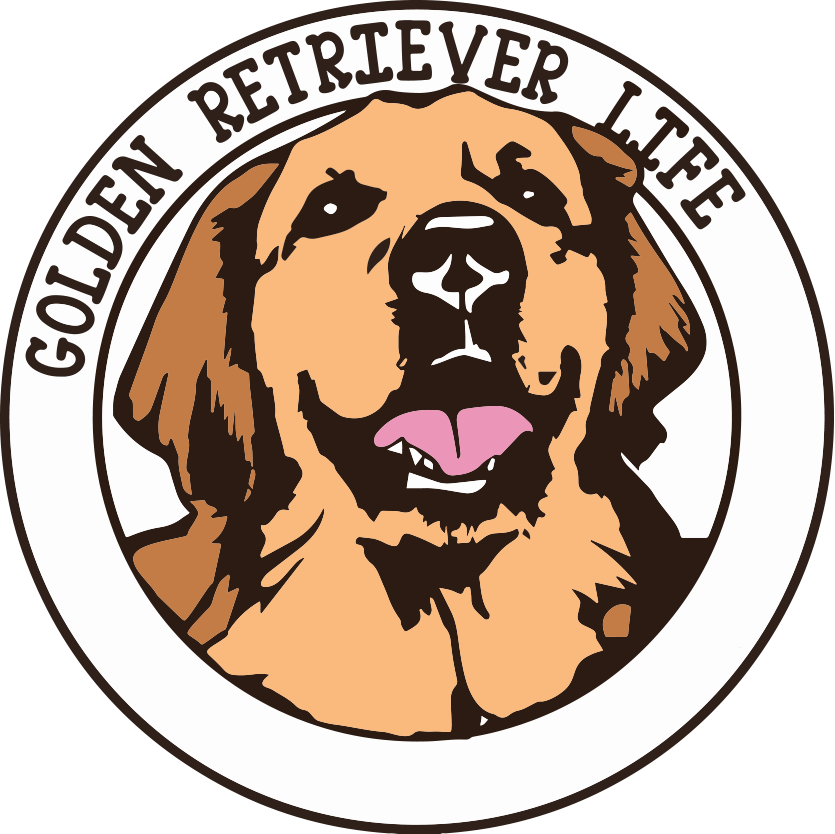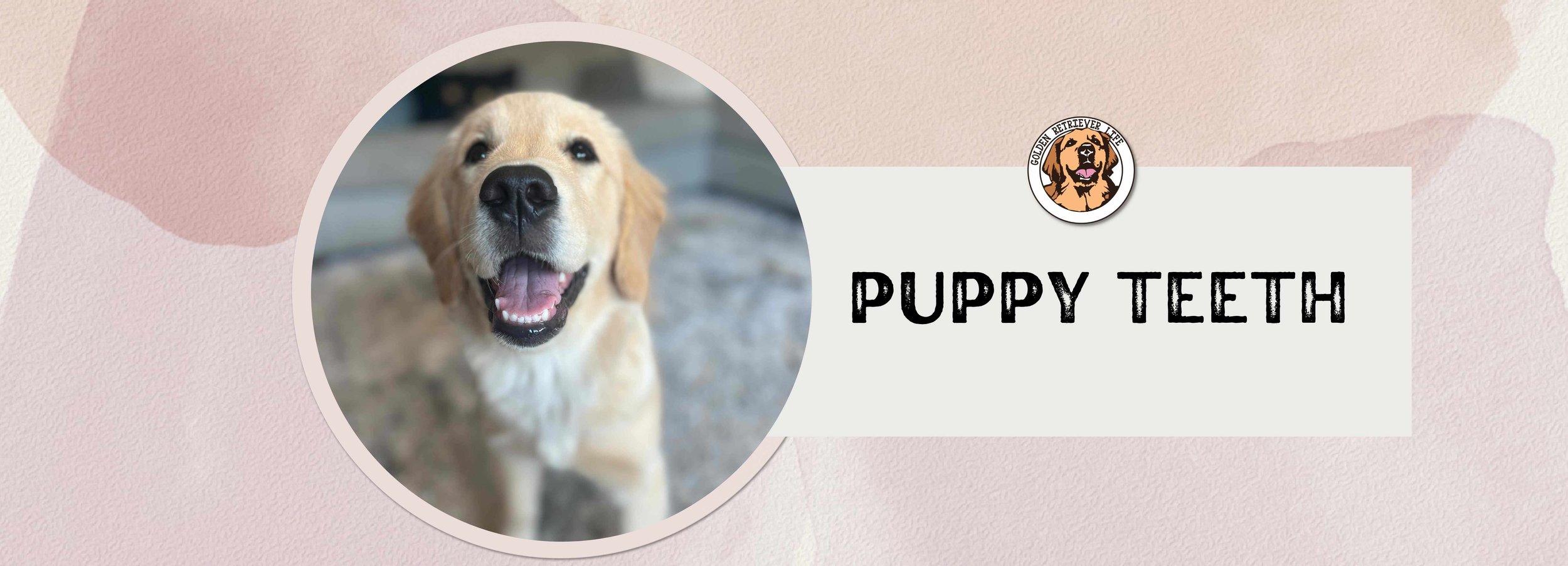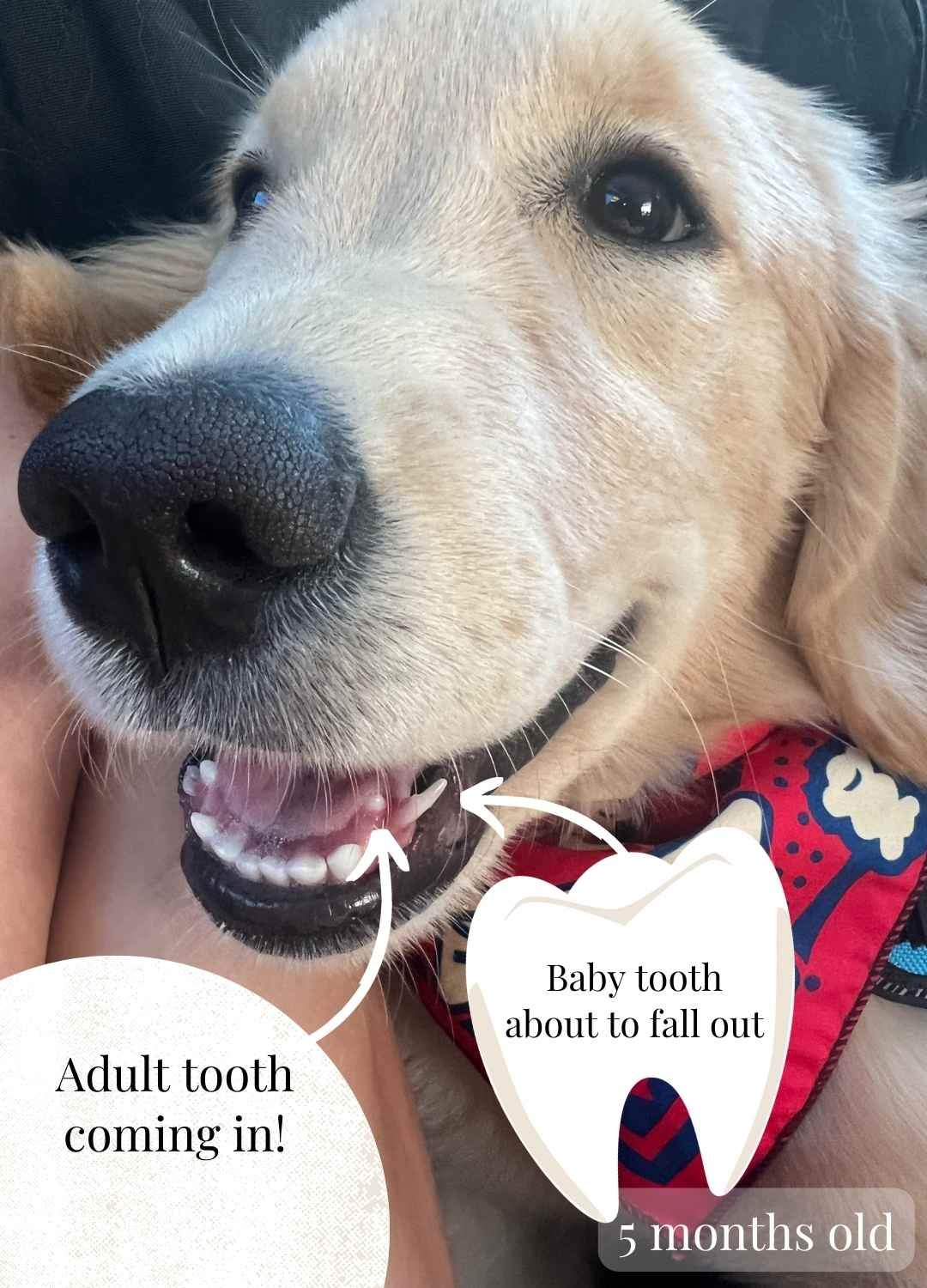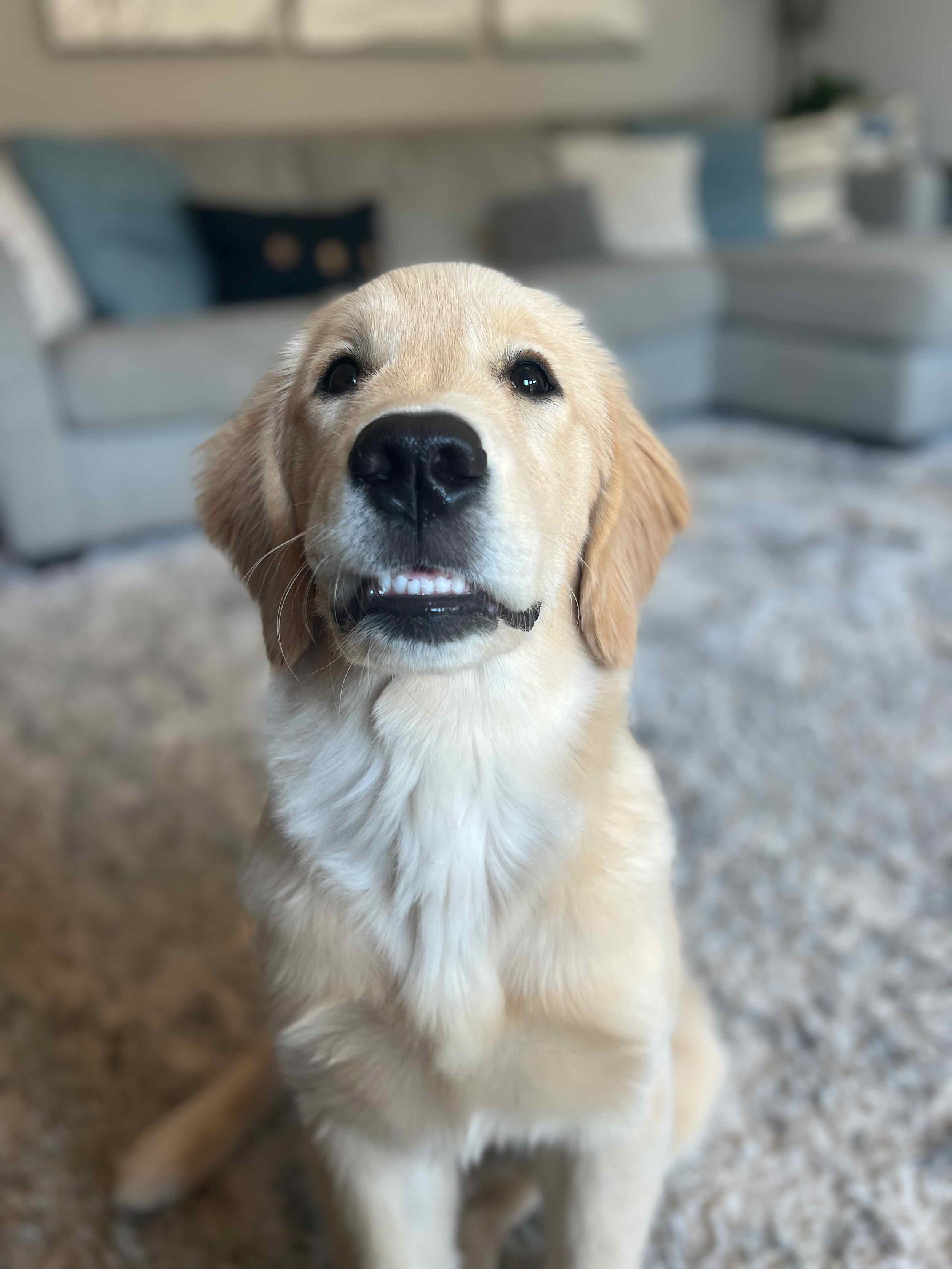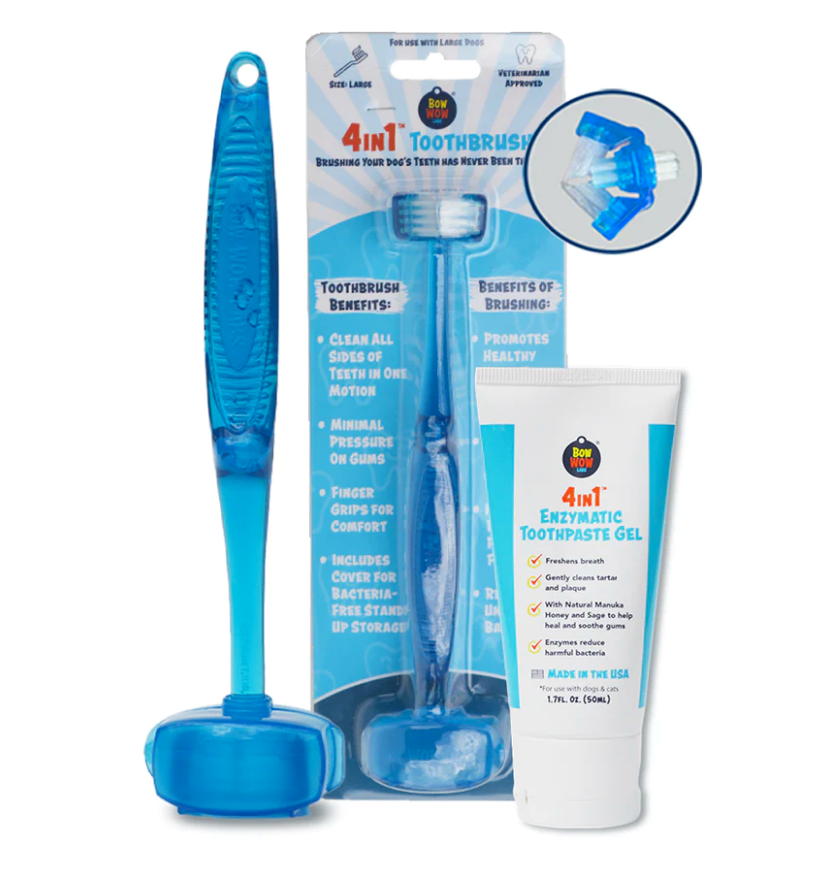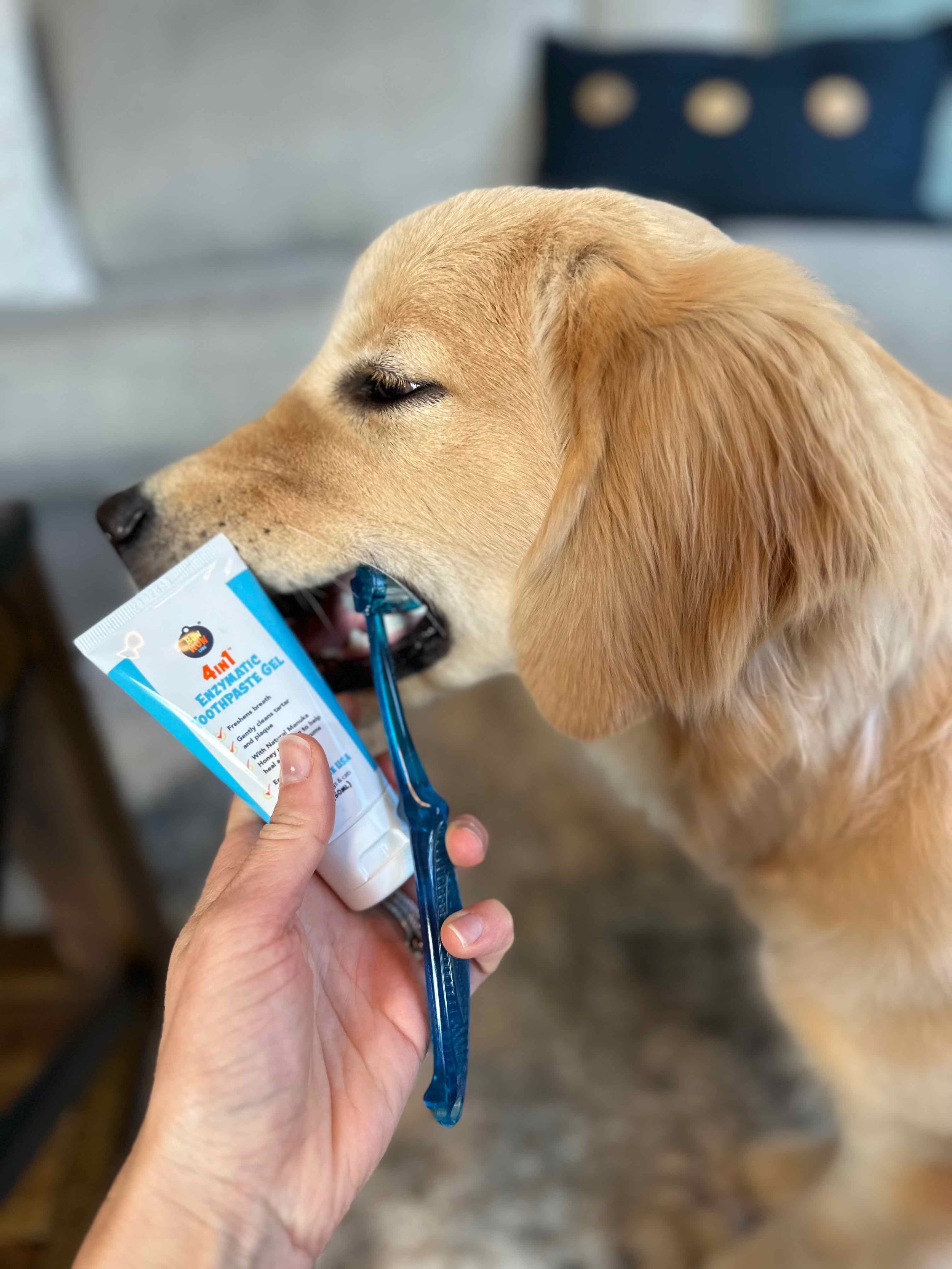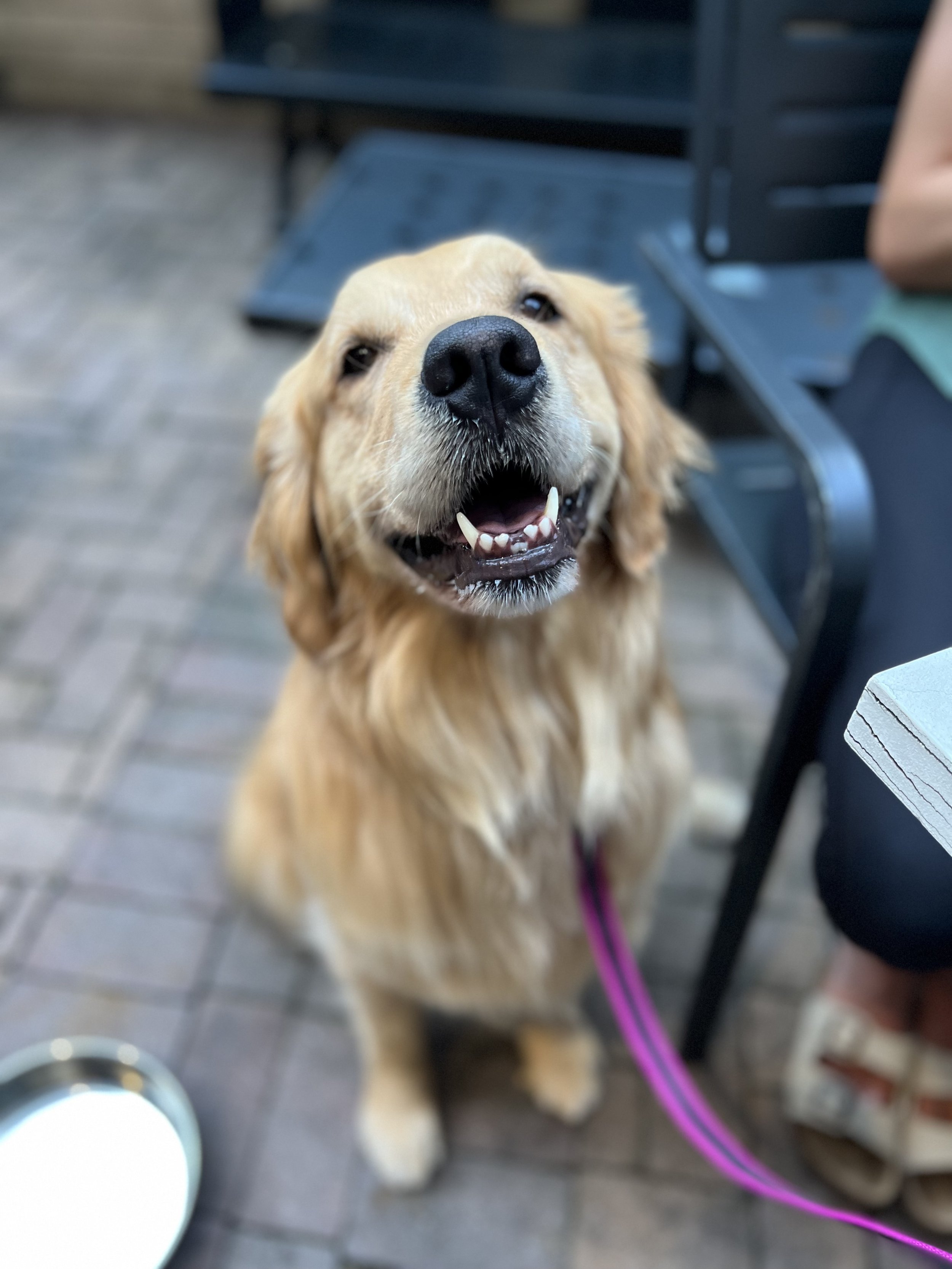Understanding Your Puppy's Teeth: A Guide to Teething, Chewing, and Dental Care
Did you panic the first time you noticed your puppy was missing teeth?
Perhaps you stepped on a tooth that fell out.
You’re not alone.
This blog will tell you what to expect when your puppy loses teeth and how to care for their teeth through adulthood.
So, if you’re curious to learn more about puppy teeth, read on!
Puppies are born without teeth.
Around 3 weeks old, their first set of 28 teeth starts coming in.
Around 8-16 weeks, they lose their ”baby teeth” to make room for their 48 adult teeth.
By 6-8 months, your puppy should have all their adult teeth. 😁
What To Do When Your Puppy Starts Losing Teeth
Let their teeth fall out naturally.
Do not try and pull loose teeth out yourself. This could leave the root of the loose tooth behind that could possibly lead to an infection.
I had a fun surprise when Emma’s breath started to smell horrible while losing her teeth. I learned this is common and will go away when their adult teeth come in fully.
Watch Emma’s surprise from the toothfairy.
Sharp Puppy Teeth
Puppies are known to have sharp, pointy baby teeth that can wreak havoc on not just your shoes but your hands, arms, and fingers too.
Sharp teeth are important because their jaws are still weak. As they begin to wean off their mother’s milk, these razor-sharp teeth help as they begin to chew solid food.
Puppy Socialization
Puppies are initially unaware of how sharp their teeth are and how hard their bite can be.
I’d recommend making puppy socialization a top priority in the first few weeks with your puppy so they can learn bite inhibition. After that, your puppy will start learning how hard their bite can be, as their playmates will squeal and withdraw when bitten too hard. This helps your puppy understand that they need to be less rough with their biting when playing.
Emma went to “puppy parties” once a week until she was 14 weeks old to play with other puppies in a safe, enclosed area with supervision.
🔹 This blog explains the importance of puppy socialization.
Puppy Teething
Teething is a process that starts when puppies are around two weeks old when the first baby teeth begin to come in.
The process usually ends when all the adult teeth erupt around eight months.
During the teething process, it’s important to provide your puppy with appropriate chew toys to relieve the discomfort that comes with teething.
How to Survive Puppy Teething
Offer plenty of safe chew toys. If not, they will find other things to bite, such as furniture.
Appropriate chewing has several benefits:
Helps relieve the pain and discomfort of teething
Supports a healthy mental state by releasing important neurotransmitters
Provides mental stimulation (which is especially important with puppy energy)
Strengthens jaw muscles
Here are some guidelines for choosing the correct chew toys:
Find toys that are soft and flexible and bend easily.
Toys that are too hard to bend, and don’t in your hand, might be too hard on your puppy’s mouth and can break these fragile young teeth.
Choose long toys, so your precious fingers are far away from those razor-sharp puppy teeth (especially if children are playing with the puppy).
Long-lasting chews, such as a bully or collagen stick, should be encouraged. When mixed with saliva, these sticks soften during chewing and allow your puppy’s “shark” teeth to sink into the bone.
🔹 This blog and the following video further explains the benefits of bully sticks to keep your puppy busy.
Dental Care for Dogs
Dental care is essential through all stages of your dog’s life. It is directly linked to their overall health. Therefore, start introducing them to dental care from a young age so they are comfortable with the process.
Caring For Your Puppy’s Teeth
From day one, get your puppy used to you handling her mouth; touch her lips, gums, and teeth in a gentle, playful way. This will get your puppy used to having her mouth felt and make it easier for you to brush her teeth and maintain a dental care regimen.
Brush their teeth with dog toothpaste. I use this toothbrush and toothpaste by Bow Wow Labs.
Caring For Your Adult Dog’s Teeth
Continue teeth brushing throughout your dog’s life. In addition to teeth brushing, I offer Ellie and Emma Dog Dental Chews from Pupford. These chews have special grooves and formulation that scrapes off plaque and tarter from your dog’s gums and teeth, freshen breath and aid gut health. They’re easy, and Ellie and Emma absolutely love them!
Bully sticks and collagen sticks are other healthy options for your dog that aids teeth cleaning, deliver nutrients, and keep them occupied by satisfying their urge to chew.
I would highly recommend using a Bow Wow Buddy with bully and collagen sticks to prevent your dog from swallowing the last end of the stick, which can cause choking or intestinal blockage.
Talk to your Vet
Contact your vet if you have any concerns about double teeth, crooked teeth, or an overbite.
Review a dental care plan with your vet at your next appointment.
Remember: dental care is directly linked to their overall health and is essential throughout your dog’s life.
You may also be interested in…
